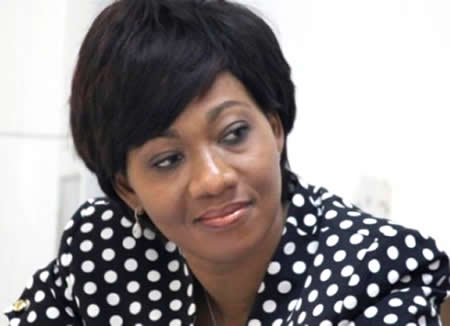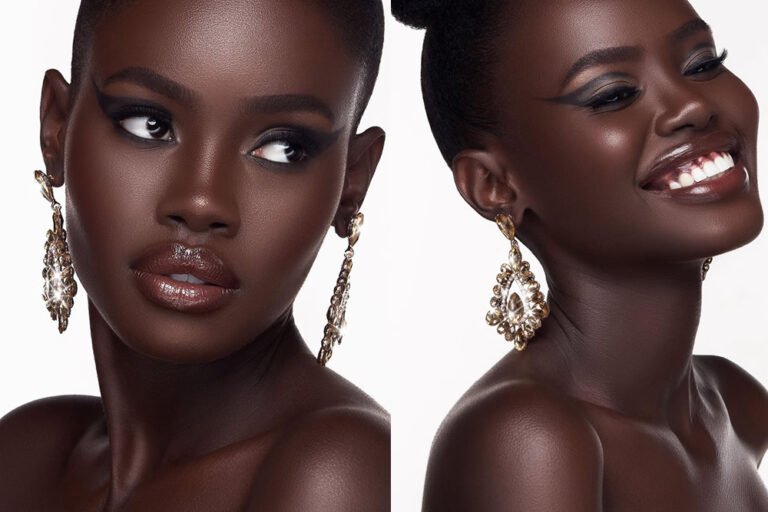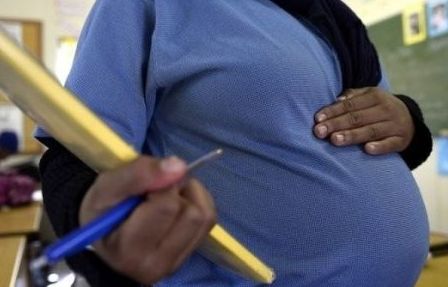Ghanaian Star Joselyn Dumas Tackles Taboos And Children’s Rights
- Home
- Ghanaian Star Joselyn Dumas Tackles Taboos And Children’s Rights

Ghanaian Star Joselyn Dumas Tackles Taboos And Children’s Rights
 Joselyn Dumas will speak at the Global Landscapes Forum Bonn 2019 on 22–23 June. Register to attend or tune-in digitally here.
Joselyn Dumas will speak at the Global Landscapes Forum Bonn 2019 on 22–23 June. Register to attend or tune-in digitally here.
The glitzy world of celebrity culture might sometimes seem light-years away from the gritty coalfaces of campaigns on climate and rights issues. But Ghanaian TV personality and activist Joselyn Dumas says there are definite benefits to walking in both worlds.
Born and raised in the Ghanaian capital Accra, Dumas dreamed of becoming a pilot. But her life took a surprising turn in her early twenties, when she joined one of Ghana’s top TV production houses as a part-time TV host. Her career quickly took off, and she starred in a number of shows and films, including A Northern Affair (2014), which earned her a Ghana Movie Award and an Africa Movie Award nomination for Best Actress. In West Africa, she’s now a household name, and she currently hosts the popular TV talk show At Home with Joselyn Dumas which is aired across Africa and in parts of Europe.
But Dumas isn’t content to sit back and enjoy her success. Instead, she runs the philanthropic Joselyn Canfor-Dumas Foundation, which works to advance children’s rights in Ghana and also addresses broader health and environmental challenges. “After my career took off, I wanted to give back,” says Dumas, “and I decided that children are the most vulnerable in society: they’re almost like the voiceless. I want them to get a chance in education and health and a good quality of life. And so I decided I would set up my foundation to do just that.”

Through the foundation, she has funded medical care and education for disadvantaged children, improvements to children’s hospitals, and actions to support children living with conditions such as autism and sickle cell anemia. She has also run awareness campaigns on local health issues such as cholera as well as on environmental issues of plastic pollution and climate change.
In Ghana, climate change is already making noticeable impacts on the environment, public health and the economy. A quarter of the population lives along the coast in rapidly-expanding urban areas that are being impacted by sea-level rise and increased flooding. Droughts are affecting the country’s already-erratic electricity supply – and the 45 percent of the country’s workforce who practice rain-fed agriculture.
At local levels, there are often gendered implications to the challenges posed by climate change, says Dumas. For example, many of the country’s roads are vulnerable to flooding, and plastic pollution clogging roadside drains can exacerbate the situation further, leaving lots of roads impassable when rains are heavy. This means many children must cross rivers to reach their schools. However, in some communities, it’s taboo for girls and women to cross rivers when they’re menstruating – and this can mean they miss out on a lot of school time, says Dumas.
These taboos are only in place in some communities, she notes. But across Ghana, the inability to afford sanitary products limits a lot of girls’ school attendance, which exacerbates gendered inequality in education levels and outcomes. So ‘period poverty’ is another area that she is hoping to address through her foundation.
Dumas has found that her skills as an actor and entertainer have been very complementary for the educational and awareness-raising work she has taken on through the foundation. “We role-play a lot; we bring in a lot of drumming and dancing; we make it very interesting,” she describes. “So you’re singing along, but you’re learning something in the process: a new way of washing your hands, of keeping your environment clean. And you’re having fun doing it.”
Her public profile also helps bring support to the causes she champions. Dumas has a huge social media following, which has helped her to mobilize significant funds and volunteers, as well as to broadcast her messages widely. She would like to see more celebrities doing the same: “I think that a lot of us in the limelight can all collectively do something,” she says, “using our platforms not just to entertain and show pictures of what we’ve done or our work, but also to use them for change.”
Aware of her status as an ‘influencer,’ Dumas is careful to model the kinds of behaviors she would like to see others adopting. She uses a water filter so she doesn’t have to buy bottled water, says no to straws, and brings a reusable coffee cup with her everywhere she goes. “I think often we wait for someone else to start these things,” she says. “But we can’t just wait around for our leaders to do something. We are all leaders, and we can all contribute to change.”
Source: news.globallandscapesforum.org
Classic Ghana
Classic Ghana brings you into a fun world of arts, entertainment, fashion, beauty, photography, culture and all things in between. Let’s explore these together!


